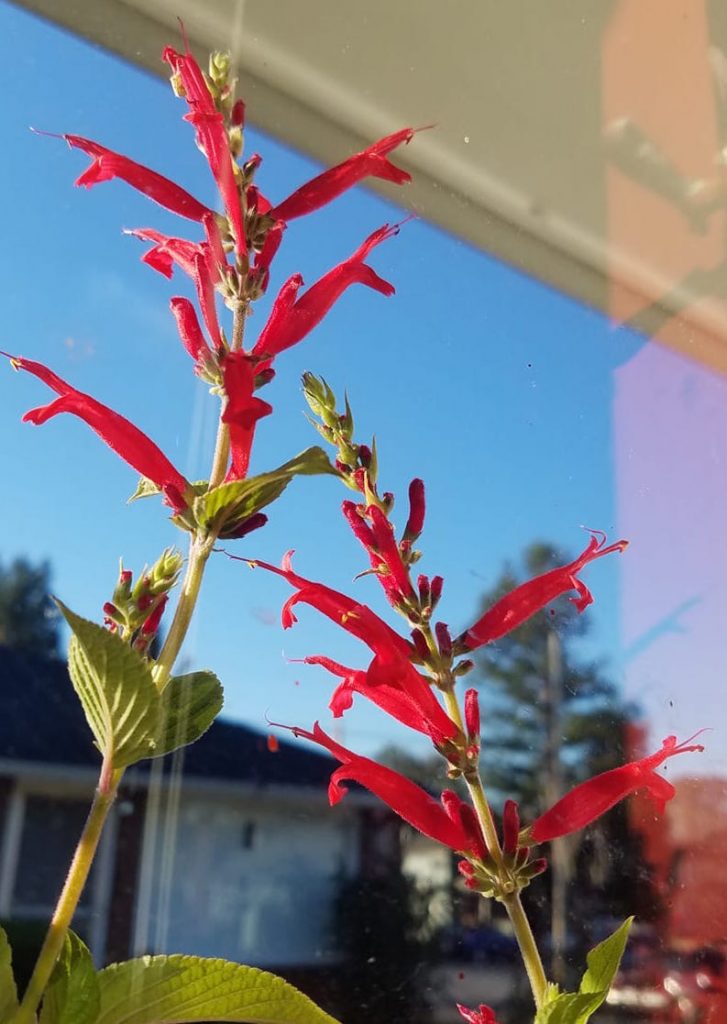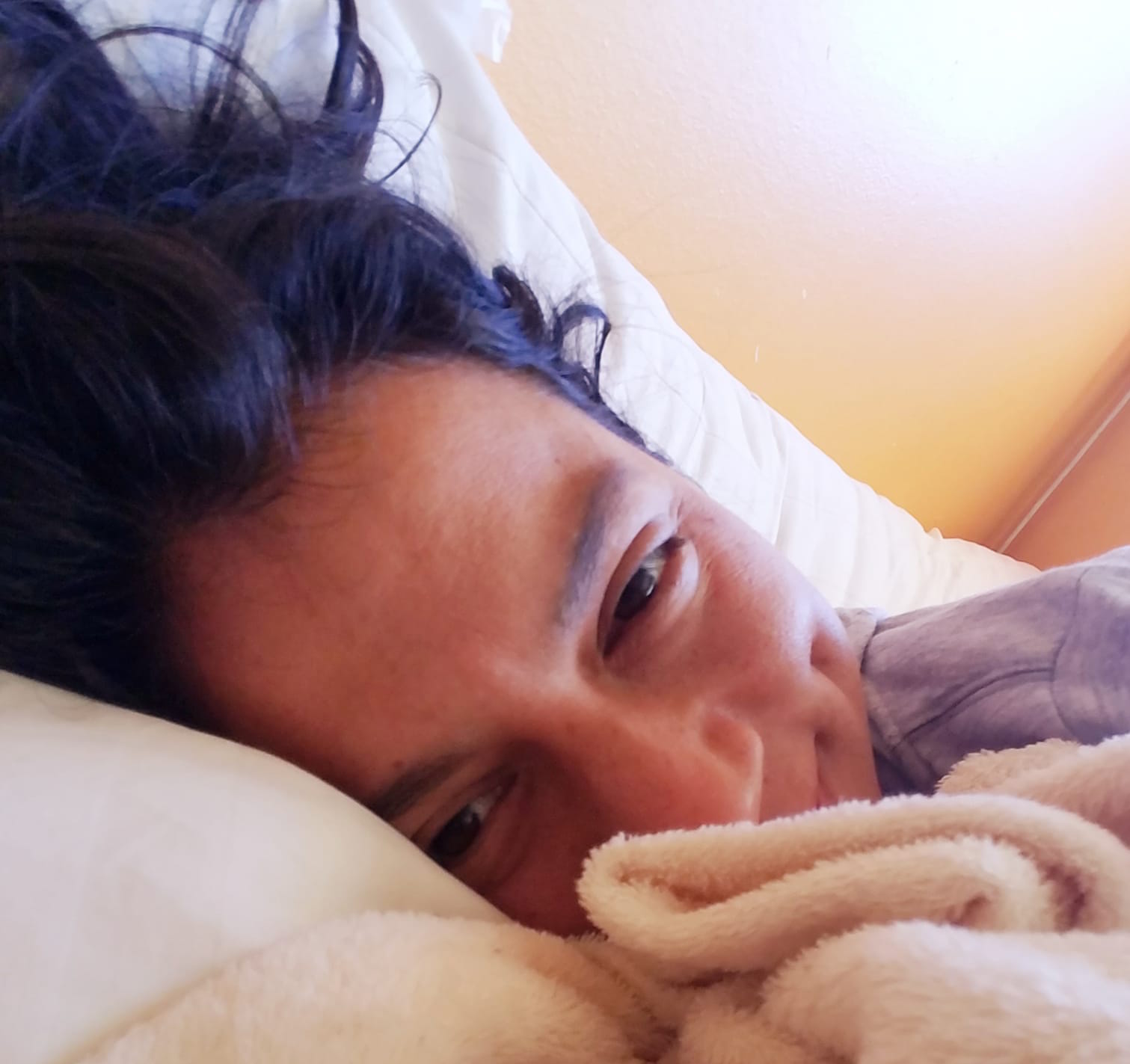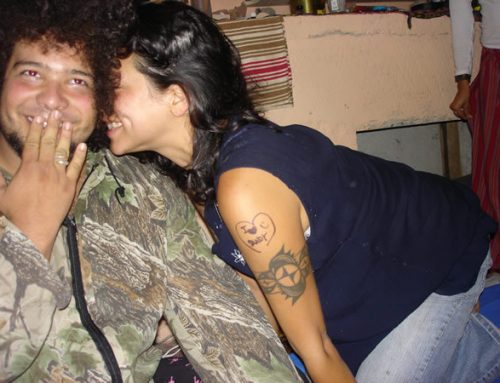11/2/19 Journal Entry
This morning before I was even fully awake, I was aware of anxiety waiting faithfully for me like a cat at the door of my waking consciousness. Although this doesn’t happen every morning, it’s not at all uncommon for me to wake up anxious. I’ve experienced ongoing anxiety since I was a child, and it used to be my emotional default mode.
For years I even used anxiety as a tool to force myself out of bed. Thankfully, I finally decided that was a crappy way to wake up. Now, I practice self-massage and say loving things to myself to get myself out of bed. It takes longer, but it is more effective in the long run, because my quality of life has vastly improved.
Through a lot of personal work, I am learning that I am not the anxiety that I feel. I’ve become more aware of how anxiety cycles in my consciousness and body throughout a day. Sometimes, I find days and weeks when my anxiety is so minimal, I almost forget about it. At other times, it comes back almost as strong as ever. I’m learning to not punish myself for feeling anxious. I’m changing my relationship with anxiety. I don’t expect it to disappear. I use it as a sign that I need to support myself more through various practices.
I call one of these practices the “I love you” practice. When I woke up this morning and sensed the beginning stages of anxiety forming, my immediate response was to say, “I love you,” out loud to myself. I felt the warmth of receiving those words. It felt as meaningful as if another person were saying this to me. As my body snuggled into my pillows and blankets, my inner sense of well-being felt held in a loving container.
I wasn’t born practicing the ability to send and receive love to and from myself in the face of inner constriction. This ability is the fruit of a daily commitment to change the way I talk to myself in a way that is worthy of me. It’s been almost three years since I began “I Love You” practice with myself, and like so many powerful personal transformations, it started with a painful breakup.
For one and a half years before I started saying “I love you” to myself, I was in a relationship that I took very seriously. My partner and I were in the habit of saying I love you to each other at least three times a day. In the challenging aftermath of this relationship’s dissolution, I quickly came to realize that I still needed to hear “I love you” as much as I had before. In fact, I needed it at least twice as much.
For a while, I really didn’t get much comfort out of hearing me say to myself say “I love you.” To be honest, it felt a little sad and lonely. Inwardly, I was thinking, “Of course I love me. I’m stuck with me. If I don’t invest in loving me, I’m going to kill me, and I gave up on suicide in my early twenties.”
After a while, I started to accept my self-love affirmations as comforting background noise. I heard it. I was happy to hear it, but the meaning of the words didn’t sink in. Rather, saying “I love you” to myself kind of felt like when I was a teenager and my mom would tell me she loved me. At the time, I was more concerned about peers liking me than my mom loving me.
It took considerable painful self-reflection to realize that what my ex thought of me mattered more to me than what I thought of myself. I decided that had to end, and I was the only one who could fix this disservice. I was determined to win back the primacy of my own value and affection.

It’s a blessing that things change, and when we put our minds to it, they can change for the better. I became so good at saying “I love you” to myself consistently, both when feeling good and feeling badly, it really started to work.
Now if I’m upset or lonely, I’ll say, “Hey I love you,” and part of me will accept it, even if only grudgingly. Then I’ll make a choice to take it easier on myself. If I’m starting to have negative self-talk, I interrupt myself with, “I love you,” until I change my tone. If I’m having a hard time emotionally, I agree to go general in my thoughts, and I postpone heavy thinking until I’m vibrating a higher frequency. Then I’ll do something loving for myself like making a great meal, going on a walk, or watching a movie.
I follow my words up with actions.
I take myself on nature dates that connect me to my soul, and I appreciate myself for taking the time to feed my heart. I thank myself for taking care of tasks that are easy and hard. If I start feeling irritation or disgust with myself, I may say something like, “Hey! Cut that out! Stop being hard on me. I love you.”
Saying “I love you” to myself has become a way to replace the damaging cycle of negative self-talk that used to occur every time I was feeling low with a new pattern of offering supportive, loving thoughts when I feel down. Whenever I have a feeling that I can’t control, or I feel weak, jealous, or insecure, my immediate reaction is to shrink into myself or to lash out in anger. Saying, “I love you” out loud is my condensed way of saying, “Hey I know you don’t believe in me right now, and I don’t care, because I see you. I’m going to love you until you can feel it like the sun glowing inside your chest.”
About a year into this practice, I was feeling particularly lonely as I washed the dishes. In reaction to this feeling, I felt anxiety rising. I said, “I love you” out loud a few times. I heard the words, but it was all meaningless sound. Suddenly, out of nowhere, I heard a monster Muppet voice growling from my own throat,
I LOVE YOU IVETT.
It took me by complete surprise!
Who was this person who knew exactly how I was feeling, who knew I wasn’t truly listening to my loving words, and who knew how to shock me out of my blues with my own brand of spontaneous childlike humor?
Who was this person?
This person was me!
I immediately started cracking up laughing at the sink. The loneliness vanished in an instant. It had to. I wasn’t alone anymore. I was with my incredible, faithful, funny, and wild best friend.
I know now that I am not some empty lost ghost wandering like a sad rumor in my head. I am a flesh-and-bone woman with twenty different kinds of laughter, and a presence that can fully take up center stage in my own honey heart.
This self-love practice does not replace my need for the love of others. Rather, it makes me a better friend and ally, because I’m not constantly reaching out for someone else to give me the love that I can only get from myself. When I come to my friends, I come as a woman who knows her own value and can see the value inherent in them. I’m frequently giving and receiving “I love you” from my friends and family.
I am committed to saying “I love you” to myself for the rest of my life. I have become the darling of my heart in a way that I used to try so hard to be for someone else. Now I don’t have to shout it or shock myself into accepting it. I can say it internally and outwardly and still get the message.
This morning as I melted into the warm chocolate feeling of my own love, I smiled and radiated peace under my ivory sheepskin blanket. I had a delicious sense of how far I’ve come over the last three years with this practice.
My love has become my most precious possession.
photo credit: Ivett Almaguer






Leave A Comment